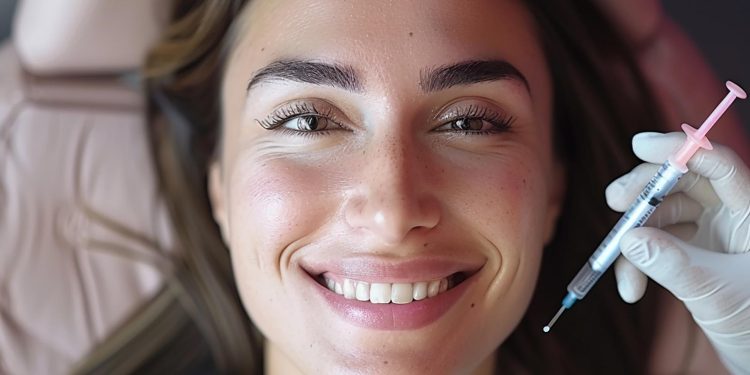It is usual for people to want to remain looking young well into their later years, but many also want to stay clear of wrinkles and other skin irregularities throughout their middle years. Thanks to medical and beauty industry advancements, we can now prolong the natural and youthful look and be more confident in ourselves. A smoother appearance and augmented facial features, are a reality, and they have been for decades now. What was once considered a luxury reserved for the richest of the rich is widely available for anyone unsatisfied with a specific facial element.
The contemporary beauty industry is full of solutions, procedures, and surgeries you can undergo to change whatever you deem wrong, distasteful, too big, or too small. The most straightforward among these are filler treatments, during which the patients have dermal fillers injected into their skin at different depths so that their wrinkles go away, their facial volume increases, and their features remain visible. The fillers contain soft tissue of hyaluronic acid, which occurs naturally in the cartilage and skin. However, the fillers are temporary since the body absorbs them.
Because of this, the treatment needs to be repeated over time. In addition, some people may need more of it per session due to the complexity of their skin and facial features. This has led to fillers becoming one of the most widespread beauty procedures on the planet. If you have ever wondered what it would be like to have them injected or what you need to do to prepare for them, we’ve got you covered. In this article, you will learn everything you need to prepare for your first dermal filler treatment correctly.
Research
Doing anything for the first time requires research, let alone undergoing a procedure on your body. While it is perfectly safe and straightforward, and while the beauty technicians perform dozens of treatments daily, you still need to ensure you know what it is all about and what is being done to you. You have to understand all the steps and risks included and how long you will need to recover. The best way to do so is to consult with the on-site facial plastic surgeon or an experienced professional whose job is to talk to the clients and give them advice. Ask anything you want to know at the consultations, and take the time to understand all the little pieces.
Have an Examination
Undergoing an examination goes hand in hand with the consultation you will have, but we have to mention it nonetheless. The surgeon caring for you should examine your facial features and skin to locate any potential concerns preventing you from receiving the fillers or making your job more complicated. Every client is different, and you will indeed have your individual needs the experts have to fulfil. During the examination, you will learn more about your face and what it needs to look how you want it to. If you do not like what you hear, you do not have to proceed with the filler treatment. You will have learned more about it, though, and something else could work better for you.
Choose the Right Clinic and Surgeon
The most important thing to consider is the clinic you choose and the staff who will care for you. Reading reviews and experiences from past clients could be a good start, but you can only be sure how well they are doing their job once you visit them and talk to the surgeon. You are not obliged to go through with it and can decide to leave anytime. If you dislike how they speak to you, how they behave, or what their clinic looks and feels like, move on. When it comes to surgeons, they have to be experienced and have years, if not a few decades, of procedures behind them. Their age does not have to be the deciding factor, but there is more chance they are experienced if they are a bit older. Check their licenses and awards if they have any. Talk to the people who were their clients.
Preparing Yourself
So far, we have discussed the technical details. Now, we are getting to the more crucial things when you have already booked an appointment. A week before the filler treatment is scheduled, you should not take any medication that thins blood. Supplements and medications, including Aspirin, Tylenol, Ibuprofen, vitamin E, ginkgo biloba, primrose oil, ginseng, and garlic, are not advised. It is also important not to drink alcohol for a week before the treatment.
Two days or 48 hours before the procedure, it is advised for the patients to take arnica since it helps reduce bruising and redness that commonly occurs following the treatment. You must avoid additional products, mainly Retinol, anti-ageing serums and creams, Retinoids, Glycolic Acid, and Tretinoin. A day before the treatment and for the following 24 hours, expose yourself to as little sun as possible so as not to damage the skin. If you live in sunny areas where this is impossible, wear SPF 30 sunscreen and plenty of moisturiser.
As you can see, there is not really much to it. Being diligent and following these simple rules is all you need to ensure if you want your first dermal filler to go smoothly and successfully. Stick to this simple guide and become a returning client who knows how beneficial this routine treatment is if done correctly.














